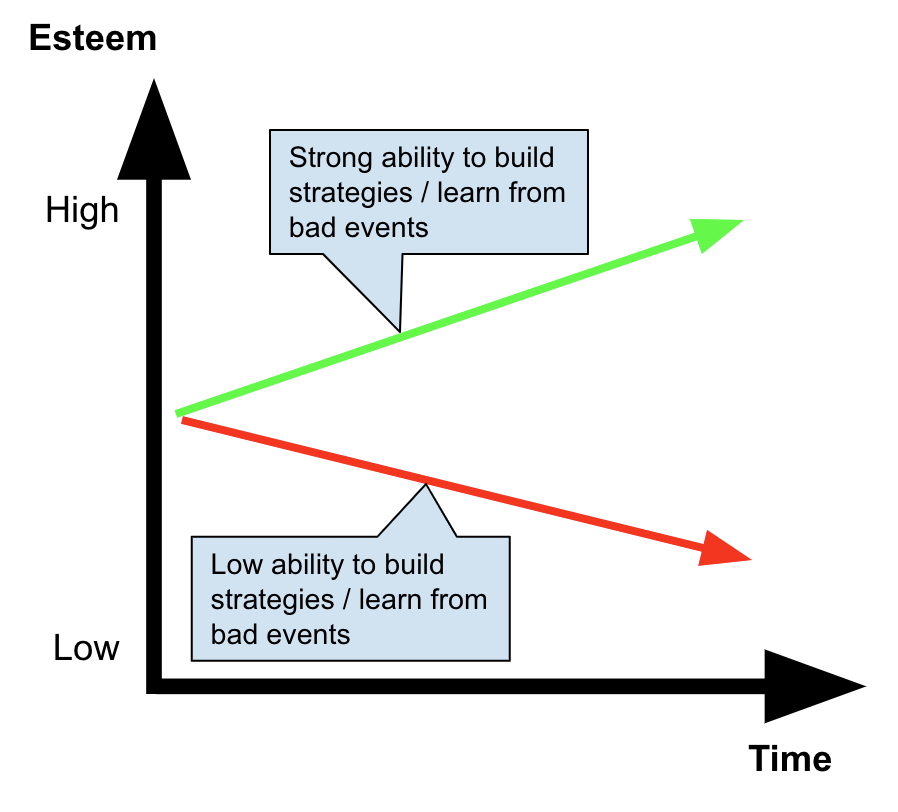The only way to fail is to fail to learn
/By Duncan Anderson. To see all blogs click here.
Reading time: 4 mins
One Sentence Summary: in the present good and bad things will happen, but bad things in the present can be good long term if you can learn from them.
*Note: for the purpose of this blog I’m going to be talking about work, but I think these ideas can apply in other areas.
“The good learn from everyone and everything, the average only from themselves, and the stupid already know everything.” Socrates
I find that the ability to learn from ‘bad events’ is one of the most powerful things one can cultivate.
If you can learn from a ‘bad event’, then often it stops being ‘bad’ and can actually turn into a ‘learning event’... so something good can have happened or you can have learned something!
“A mistake is only an error, it becomes a mistake when you fail to correct it” - John Lennon
But if something good happened in the present and you want more of this goodness in the future then best to learn about the good too :).
Jingle: The only way to fail is to fail to learn. If you can learn from any circumstance then you can win all the time?
Being ‘present’ is not all it’s cracked up to be; reflection is your friends
Spending time with your mind in the past is helpful, contrary to what some new-age might suggest
There is much to be gained from letting your mind time-travel: hindsight, foresight; reflection and contemplation
You = Your experiences * How you process them
IMO at any given point you can choose to change how you process things… But that doesn't necessarily mean it is easy.
As such you can change who you are?
"The events of your past are fixed. The meaning of your past is not. The influence of every experience in your life is determined by the meaning you assign to it. Assign a more useful meaning to your past and it becomes easier to take a more useful action in the present." James Clear
“I am not a product of my circumstances. I am a product of my decisions.” Stephen R Covery
“God, grant me the serenity to accept the things I cannot change, courage to change the things I can, and wisdom to know the difference.” Serenity prayer.
Can you change your mind? Yes. If you can change your mind then who are you?
If you can change something, why worry? If you can’t change something, why worry?
Learned helplessness vs Learned help yourself-ness
Learned helplessness = no strategy / plan
This notion comes from attribution theory in psychology. When we attribute things to an internal (i.e. stemming from within the self) and stable (i.e. fixed; unchangeable), we believe we can’t change; we learn to be helpless.
Leaned help yourself-ness = have strategy / good at building strategies
Rearticulation: Plan = Hope. No plan = Hopeless.
Plan = Learning = Strategy for how to approach a similar circumstance in the future better (blog link on strategies = improved intelligence)
Bad work event => don’t learn from it / don’t build strategy (plan) for what to do if the event occurs again => learned helplessness => get a fixed mindset that you can’t improve => hopeless
Bad work event => do learn from it / do build strategy (plan) for what to do if the event occurs again => learned help yourself-ness => get a growth mindset that you can improve => hope
Can't build strategies ⇔ Can build strategies (blog link)
L0: don't know about the concept of strategies
L1: can only do strategies given by others
L2: can build strategies in one vertical
L3: can build strategies in multiple verticals
L4: have strong ability and as such belief that can build and upgrade strategies almost everywhere. With almost any bad work event you can strategise it out (aka learn from it) and long term turn the ‘bad event into something that works for you, not something that scares you’.
Esteem = Percentage Win Rate… but can all events be wins long term?
Definitely some events in the present don’t go well at work and if you had your time again you’d do them differently. At the time they might be chalked up as a ‘loss’.
But if you can learn from the ‘loss’ and were to have your time again you could turn that ‘loss’ into a ‘win’, then the loss wasn’t for nothing. In fact the loss led to future wins… so in some respects it was a ‘win’.
So if you either ‘win’ or ‘learn’... and learning is actually a win of sorts, then with a strong ability to learn you have ‘winning’ or ‘winning’.
So it’s possible for your win rate to be 100%? So you can have strong self esteem in the longer term?
“The most fertile source of insight is hindsight.” - Morris Kline
“Time heals all wounds”
Increasing vs Decreasing Esteem
Some continuums for ya!
If you have strong belief and ability that you can build strategies to improve how you operate then your enthusiasm / self belief / etc can grow :).
If you only take away one thing
Some circumstances are life and death, hopefully your work is not!
Just because something can’t physically hurt you doesn’t mean it can mentally hurt you (eg hit your self belief).
The best defence is a good offence.
If you know no matter what work throws at you and how poorly you might perform in the moment; that if you can learn from an event you can eventually be better because of the event. Then while the short time might sting, the long term should sing!




